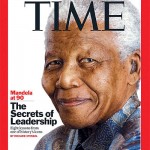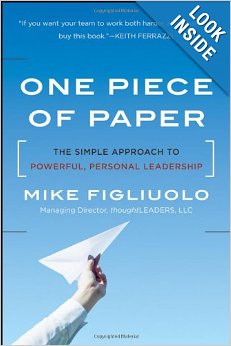By Rhonda Jaipaul-O’Garro
In attempting to articulate a personal leadership philosophy, my thoughts were shaped by principles outlined in several books and articles by leadership experts. Added to consideration is my consciousness of being part of a generation of “wonder women” who continue to shatter the glass ceiling and want to have both a successful career and a thriving family. As I put the final touches on my piece, the world received news of the passing of one of the greatest leaders of our time – Nelson Mandela, and so I also contemplated this icon’s leadership influence.
Given that my entire professional life has been spent in the higher education marketing and communications sector, I chose to interview subjects with a similar background to my own. They were all drawn from Arizona State University (ASU), from the fields of communications and marketing. As a female professional, it was also important to me to center my research on powerful, successful women leaders. I am deeply indebted to ASU’s Vice President of University Marketing, Ann Toca; Associate Vice President of Marketing & Strategic Communications, Terri Shafer and Director of Communications, Sharon Keeler, who took time out of their very demanding schedules to participate in this project. Attending the ASU Faculty Women’s Association Leadership Summit 2013 titled “Revisioning Leadership: Models for Leadership in Administration, Academics and Community” was also tremendously influential in shaping this thesis. This year’s summit featured successful women faculty at various stages in their career and discussed the pathways and roadblocks to leadership, and thoughts on redefining leadership roles in modern day.
To guide me through the process of defining who I am as a leader, I relied heavily on the philosophy of Mike Figliuolo and his book One Piece of Paper: The Simple Approach to Powerful, Personal Leadership. Through a sequence of simple questions, One Piece of Paper helps its readers to create a living document that communicates their personal passions, values, goals and standards that define their personal leadership philosophy. For my interviews, I asked my subjects the same four questions that Figliuolo addresses in his book. He calls these the “four aspects of leadership.”
- Leading yourself: What motivates you and what are your rules of personal conduct? What do you want the “future” to look like and stand for?
- Leading the thinking: Where are you taking your organization and how will you innovate to drive change? What are your standards of performance for how you will safely get to your destination?
- Leading your people: How can you lead a team as individuals rather than as faceless cogs in a machine?
- Leading a balanced life: If you are burned out, you are worthless. How do you define and achieve equilibrium/balance between work and personal obligations?
I combined interviewees’ reflections on these four questions with insights from other readings and used them to shape my own leadership philosophy into seven main aspirations, which can be encapsulated as:
- To create a 360° sphere of influence.
- To discover my signature voice and leadership presence.
- To become an authentic leader and lead with heart.
- To avoid being a one-dimensional leader and entering a leadership comfort zone rut.
- To lead a balanced life.
- To win confidence.
- To embrace and leverage my personality styles instead of trying to reject/suppress them.
Intrigued by Maxwell’s “Five Levels of Leadership,” I want to become a level 5 leader: one who people follow out of respect, because of who I am and what I represent.
 In my view, a perfect embodiment of a 360 Degree leader is that of Nelson Mandela. An opinion piece in The Guardian[1] described Mandela as “A leader above all others. His character, and a life that kept him off stage for a long period, produced an almost unique mixture of wisdom and innocence.” The article reminded me that Mandela’s own leadership philosophy was largely defined during his 27 years in prison. In this period, Mandela had no operational control or decision-making authority, yet he was able to effectively rise as an iconic leader of freedom and democracy.
In my view, a perfect embodiment of a 360 Degree leader is that of Nelson Mandela. An opinion piece in The Guardian[1] described Mandela as “A leader above all others. His character, and a life that kept him off stage for a long period, produced an almost unique mixture of wisdom and innocence.” The article reminded me that Mandela’s own leadership philosophy was largely defined during his 27 years in prison. In this period, Mandela had no operational control or decision-making authority, yet he was able to effectively rise as an iconic leader of freedom and democracy.
Closing with some of my notes from the FWA Leadership Summit seems fitting as it effectively sums up my key learnings from the combination of readings, research and interviews conducted in my search to find my leadership voice and philosophy.
- As a leader, ask “how can I help you” and serve others – do what needs to be done, roll up your sleeves and be involved.
- Each of us has an obligation to lead from where we are.
- Help others to thrive and place emphasis on mentorship, using leadership to make an impact on others.
- Lead with empathy.
- Remember leadership transcends position on the organizational chart.
- Maintain a work-life balance and prioritize your time.
- There is an imperative for coaching – you are only successful if the people that you work with are successful.
This exercise was instrumental in identifying particular traits that I want to adopt and specific ways that I would like to behave in order to truly become an authentic leader. It helped me discover some basic tenets that are important to me as well as recognize areas of weakness for improvement. While I am not yet able to fully encapsulate my leadership philosophy on “one piece of paper,” I know I am well on my way.
REFERENCES:
Asmus, M. (2013, December 4). Make yourself a “to become” list. Posted to http://smartblogs.com/leadership/2013/12/04/make-yourself-a-to-become-list/?utm_source=brief.
Baldoni, J. (2013, December 6). To win the confidence of others, speak up. Posted to http://smartblogs.com/leadership/2013/12/06/to-win-the-confidence-of-others-speak-up/.
Figliuolo, M. (2011). One piece of paper: The simple approach to powerful, personal leadership. San Francisco, California: Jossey Bass.
Figliuolo, M. (2013, December 2). Stop leading like an eight year old boy. Posted to http://www.thoughtleadersllc.com/2013/12/stop-leading-like-an-eight-year-old-boy/.
Gallo, A. (2013, May 2). Act like a leader before you are one. Posted to http://blogs.hbr.org/2013/05/act-like-a-leader-before-you-a/.
George, B. (2007). True north: Discover your authentic leadership. San Francisco, California: Jossey Bass.
Maxwell, J. (2006). The 360 degree leader: Developing your influence from anywhere in the organization. Nashville, Tennessee: Thomas Nelson.
Nelson Mandela: a leader above all others. (2013, December 5). The Guardian. Posted on http://www.theguardian.com/commentisfree/2013/dec/05/nelson-mandela-a-leader-above-all-others.
Su, A and Wilkins, M. (2013). Own the room: Discover your signature voice to master your leadership presence. Boston, Massachusetts: Harvard Business School Publishing.
The John Maxwell Company (2013, December 2). From communication flunkee to connection junkie. Posted to http://www.johnmaxwell.com/blog/from-communication-flunkee-to-connection-junkie.


Hi Rhonda.
I’m really excited you got a lot out of the book! Thanks for mentioning it too. If you have a moment, I would be most appreciative of you leaving a review on Amazon if you have the time (http://bit.ly/mrWEAn). Thanks and please let me know if and how I can be helpful.
Regards,
Mike
Thanks Mike. I really value you reaching out. I’ll be happy to leave a review on Amazon.
Best regards,
Rhonda